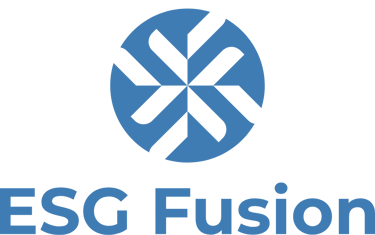Unlocking the Value of ESG: How to Drive Business Growth and Resilience
Unleashing the Potential of ESG: Going Beyond Compliance to Drive Innovation, Efficiency, Talent, and Resilience
5/30/20232 min read


Introduction:
In today's dynamic business landscape, Environmental, Social, and Governance (ESG) considerations have evolved from a mere compliance requirement to a strategic imperative for companies seeking sustainable growth and resilience. This blog post explores the untapped value of ESG, going beyond regulatory obligations and highlighting the transformative potential of integrating ESG factors into business strategies. Discover how ESG practices can drive innovation, enhance operational efficiency, attract top talent, and fortify your organization against emerging challenges.
Why This Is Important:
Embracing ESG goes beyond a checkbox exercise; it presents an opportunity for companies to unlock a multitude of benefits that can positively impact their bottom line and long-term success. By aligning with ESG principles, businesses can gain a competitive advantage, strengthen stakeholder relationships, enhance brand reputation, access new markets and capital, and mitigate risks associated with environmental and social factors. Moreover, in a world increasingly shaped by sustainable development goals, ESG serves as a compass for navigating the evolving expectations of customers, employees, investors, and communities.
Unlocking the Value:
1. Driving Innovation:
ESG integration fosters a culture of innovation by encouraging companies to explore sustainable alternatives, develop eco-friendly products and services, and adopt resource-efficient practices. By aligning business objectives with environmental and social goals, organizations can tap into new markets, attract environmentally conscious consumers, and stay ahead in an ever-evolving business landscape.
2. Fostering Innovation:
Embracing ESG practices cultivates a culture of innovation within organizations. By prioritizing sustainability and social impact, companies are encouraged to think creatively, leading to the development of new products, services, and business models that meet evolving customer demands and contribute to a more sustainable future.
3. Enhancing Operational Efficiency:
Integrating ESG considerations into day-to-day operations drives efficiency gains and cost savings. By optimizing resource usage, minimizing waste generation, and implementing sustainable supply chain practices, companies can reduce operational costs, improve resource productivity, and enhance overall operational performance.
4. Attracting Top Talent:
In an increasingly purpose-driven workforce, companies that prioritize ESG values attract and retain top talent. By aligning with the values and aspirations of employees, businesses can create an engaging work environment, foster employee loyalty and satisfaction, and attract high-performing individuals who are passionate about making a positive impact through their work.
5. Strengthening Stakeholder Relationships:
Engaging with ESG practices helps companies build trust and strengthen relationships with stakeholders. By actively considering the interests of customers, investors, employees, communities, and regulators, businesses can foster mutually beneficial partnerships, enhance their reputation, and gain a competitive advantage in the market.
6. Mitigating Risks:
ESG integration enables proactive risk management. By identifying and addressing environmental and social risks, such as climate change impacts, supply chain vulnerabilities, and reputational risks, companies can minimize potential disruptions, protect their brand value, and enhance their ability to adapt to evolving market dynamics.
7. Accessing Capital and Investment Opportunities:
Investors increasingly consider ESG factors when making investment decisions. By embracing ESG practices, companies can attract a broader range of investors, gain access to sustainable finance options, and tap into growing investment opportunities focused on sustainable and responsible business practices.
8. Navigating Regulatory Changes:
As governments worldwide emphasize sustainability and responsible business practices, companies that proactively integrate ESG considerations into their operations are better positioned to adapt to evolving regulatory frameworks. By staying ahead of regulatory changes, businesses can mitigate compliance risks, seize opportunities, and build a reputation as leaders in responsible and sustainable business practices.
Conclusion:
Embracing ESG practices goes beyond mere compliance; it unlocks significant value for companies by driving innovation, enhancing operational efficiency, attracting top talent, strengthening stakeholder relationships, mitigating risks, accessing capital, and navigating regulatory changes.
ESG Fusion is committed to supporting companies on their ESG journey, offering tailored strategies, expertise, and guidance to help unlock the full value and potential of ESG integration.
